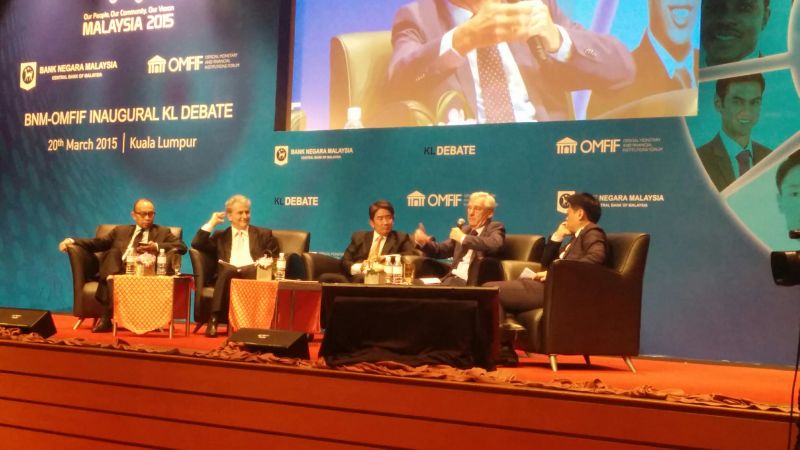KUALA LUMPUR, March 20 ― Geopolitics often muddle already complex trade agreements like the Trans-Pacific Partnership Agreement (TPPA) but proper rules in place at a global level could see Asean grow economically and socially, financial analysts said today.
In a debate titled “Regional Integration & Global Integration: Is there a conflict?”, analysts agreed that the politicking between nations often makes trade, be it regionally or globally, more difficult.
“Today what hobbles the WTO is not the fact that we're discussing free trade agreements, it's geopolitics,” University of Hong Kong Lim Chin Leng said today, referring to the World Trade Organisation by its acronym WTO.
Lim added however, that free trade agreements could help nudge nations to address geopolitical issues and to open their doors to more trade.
“Today the problems aren't tariff related, they are behind the border and the free trade agreement negotiations we see today are getting at those problems behind the borders that could actually help us strengthen the global system by addressing the need for regulatory conversions, for harmonisation, for mutual recognition,” he said at the debate organised by Bank Negara Malaysia (BNM) and the Official Monetary and Financial Institutions Forum.
Professor from John Hopkins University Michael G. Plummer added that geopolitics is clearly seen in trade negotiations like the TPPA where various businesses or nations often have “special interests” they want met.
“This business grab and corporate grab suggests there are special interests pushing the agreement, and of course there are,” he said, referring to the TPPA.
“There are (special interests) with the TPP and there are (special interests) with the WTO, that's what pushes agreements. If there are no special interests, what political momentum is there to do anything?” he questioned, referring to the TPPA by its alternate acronym TPP.
The TPPA is a free trade agreement that has been negotiated by the US, Malaysia and nine other nations as part of the larger Trans-Pacific Strategic Economic Partnership since 2010.
Plummer conceded, however, that while vying for special interests makes trade agreements complex, it is also commonplace.
“This is just part of the whole debate that we're always going to have with policy trade agreements and the problem with trade policy is that it's always messy,” he said.
The panelists championed abiding by WTO'S standardised regulation in order to help clear up some of the complexities involved with trade agreements like the TPPA.
“There are several issues that need to be resolved at the global level. That's why its important to have WTO as benchmark,” Former Indonesian Minister of Finance Dr Muhamad Chatib Basri said.
“Our first aim is to achieve the WTO benchmark because it's the lowest common denominator. Our problem is global so the solution should be global as well,” he added.
Plummer echoed Chatib's point, urging nations to follow the global rules set by the WTO.
“The rules within ASEAN need to be consistent with the global rules. We're seeing a problem of industry standards created by each regions,” he said.
European Investment Bank's Dr Ben Knapen called for cooperation from smaller nations in order to see growth of the nation as well as global trade.
“If you are a small country and you want to make sure that you are taken care of, that your interest and your people are being noticed, it helps a lot when you work together,” he said.
He added, however, that with the flourishing of global trade comes a duty to ensure its continued growth instead of stifling it.
“At the end of the day I really believe that if you work together and you get influence, you have a responsibility. And that responsibility is to ensure you enhance multilateralism, not destroy it,” he said.



















